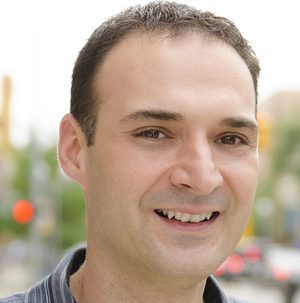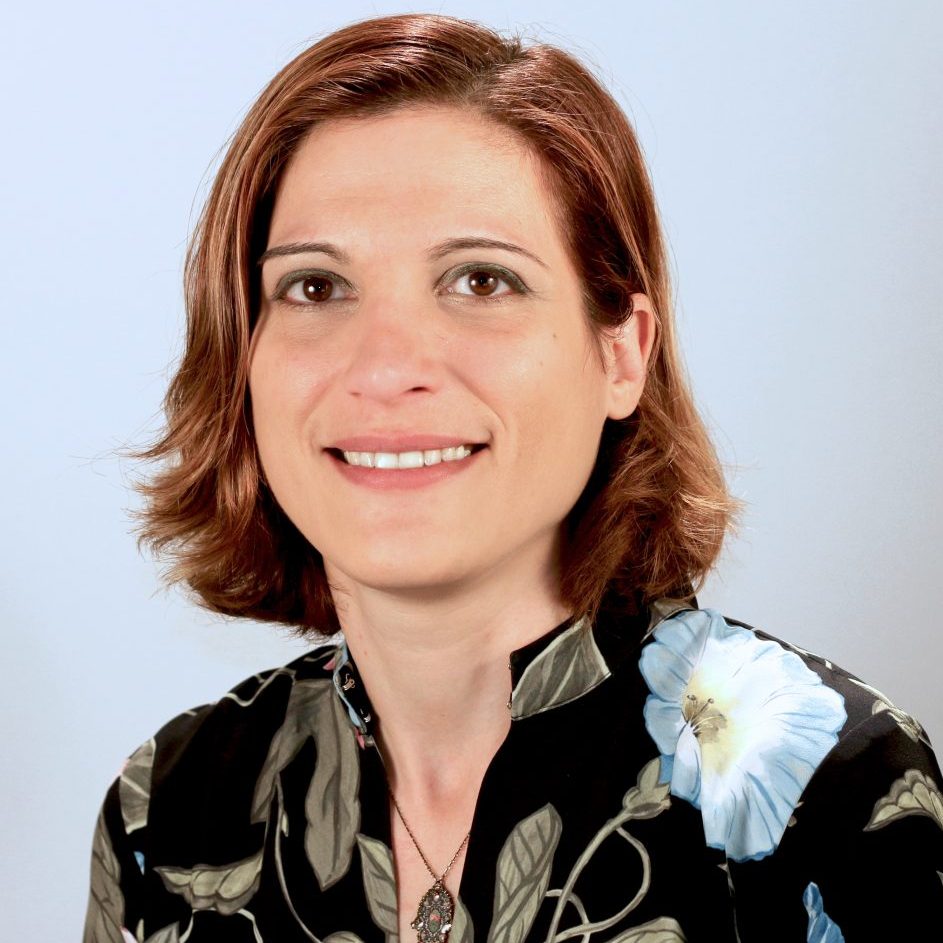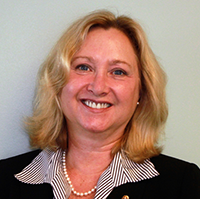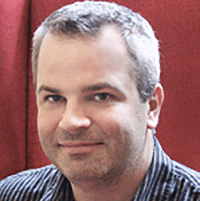2022 Faculty
Training the Next Generation
2022 Faculty
Program Director

Vivek Shetty
UCLA

Vivek Shetty
UCLA
Director - Training Core, The mHealth Center for Discovery, Optimization & Translation of Temporally-Precise Interventions (the mDOT Center)
Dr. Shetty is a Professor of Oral and Maxillofacial Surgery/Biomedical Engineering at the University of California, Los Angeles. A translational clinician-scientist, his research interests are driven by the health disparities that burden vulnerable populations (e.g., socioeconomically marginalized racial/ethnic minorities, uninsured, elderly). To help address the health inequities, he leads a transdisciplinary research program developing digital technologies that support equitable and universal access to health services and enhance the ability of health systems to deliver quality and affordable preventive care at population-level scale. A strong proponent of the public university’s role as an instrument of social good, he has served UCLA in multiple capacities including Academic Senate Chair, Assistant Vice Chancellor for Research, and member of the campus Council on Academic Personnel. Additionally, he leads national training programs (i.e., NIH-mHealth Training Institute, NIH-Mobile Sensor Data to Knowledge Center, mHealthHUB) dedicated to developing a national capacity of transdisciplinary researchers who will design and implement technology-enabled improvements in healthcare.
- Email:vshetty@ucla.edu
Program Committee

Vivek Shetty
UCLA

Vivek Shetty
UCLA
Director - Training Core, The mHealth Center for Discovery, Optimization & Translation of Temporally-Precise Interventions (the mDOT Center)
Dr. Shetty is a Professor of Oral and Maxillofacial Surgery/Biomedical Engineering at the University of California, Los Angeles. A translational clinician-scientist, his research interests are driven by the health disparities that burden vulnerable populations (e.g., socioeconomically marginalized racial/ethnic minorities, uninsured, elderly). To help address the health inequities, he leads a transdisciplinary research program developing digital technologies that support equitable and universal access to health services and enhance the ability of health systems to deliver quality and affordable preventive care at population-level scale. A strong proponent of the public university’s role as an instrument of social good, he has served UCLA in multiple capacities including Academic Senate Chair, Assistant Vice Chancellor for Research, and member of the campus Council on Academic Personnel. Additionally, he leads national training programs (i.e., NIH-mHealth Training Institute, NIH-Mobile Sensor Data to Knowledge Center, mHealthHUB) dedicated to developing a national capacity of transdisciplinary researchers who will design and implement technology-enabled improvements in healthcare.
- Email:vshetty@ucla.edu

Donna Spruijt-Metz
USC
Professor of Research, Pyschology & Preventive Medicine
Donna Spruijt-Metz is Director of the USC mHealth Collaboratory at the University of Southern California’s Center for Economic and Social Research, and Professor of Research in Psychology and Preventive Medicine. Her research focuses on childhood obesity and mobile health technologies. In 2015, she received the Obesity Society’s eHealth/mHealth Pioneer Award for Excellence in the Field. Her main interests include using mobile technologies to develop data sets that combine sensor and self-report data that is continuous, temporally rich, contextualized. Using this data along with innovative modeling techniques, she wants to develop dynamic, contextualized mathematical models of health-related behavior. She was one of the first to undertake a just-in-time, adaptive intervention (JITAI) in youth, and envisions most or all interventions being JITAI in the future. She is PI of Virtual Sprouts, a virtual, multiplatform gardening game designed to change dietary knowledge and behavior and prevent obesity in minority youth. She also leads a new project, the Monitoring & Modeling Family Eating Dynamics (M2FED) project, funded by NSF She led an NSF/EU/NIH-funded workshop in Brussels on building new computationally-enabled theoretical models to support health behavior change and maintenance in 2012. This workshop led to several publications, and a host of new collaborations. In September, she led a follow-up NSF-funded international workshop in London. Her work meshes 21st century technologies with transdisciplinary metabolic, behavioral and environmental research in order to facilitate the development of dynamic, personalized, contextualized behavioral interventions that can be adapted on the fly.
- Email:dmetz@usc.edu

Santosh Kumar
University of Memphis

Santosh Kumar
University of Memphis
Director - The mHealth Center for Discovery, Optimization & Translation of Temporally-Precise Interventions (the mDOT Center)
Dr. Santosh Kumar is the Lillian and Morrie Moss Chair of Excellence Professor in the Department of Computer Science at the University of Memphis and the Director of the NIH Center of Excellence for Mobile Sensor Data-to-Knowledge (MD2K), which is headquartered at the University of Memphis. He received his Ph.D. in Computer Science and Engineering from The Ohio State University in 2006, where his dissertation won a presidential fellowship. In 2010, Popular Science magazine named him one of America’s ten most brilliant scientists under the age of 38 (called “Brilliant Ten”). In 2011, he chaired the “mHealth Evidence” meeting jointly organized by NIH, NSF, RWJF, and McKesson Foundation to establish evidence requirements for mHealth. In 2013, he was invited to meet with the NIH Director to advise him on NIH efforts in the area of mHealth and was invited to the White House to give a talk on the future of Biosensors. In 2014, he co-organized and co-chaired the NSF-NIH Workshop on Computing Challenges in Future Mobile Health (mHealth) Systems and Applications. He holds the distinction of receiving the largest grants from both NIH ($10.8 million in 2014) and NSF ($4 million In 2016) in the history of the University of Memphis. Santosh’s research seeks to define new frontiers in the discipline of mobile health (mHealth). His decade-long work has involved collecting mobile sensor data from over 100 human volunteers for 25,000+ hours in their natural environments as part of various scientific user studies. His collaborative research involves more than twenty faculty members from fifteen institutions, spanning a variety of disciplines, making his projects highly transdisciplinary.

Bonnie Spring
Northwestern University

Bonnie Spring
Northwestern University
Northwestern University Feinberg School of Medicine
Dr. Spring is a clinical health psychologist and Professor of Preventive Medicine, Psychology and Psychiatry at Northwestern University and Director of its Center for Behavior and Health - Institute for Public Health and Medicine. She studies technology-assisted interventions to promote healthy change in multiple chronic disease risk behaviors (e.g., poor quality diet, physical inactivity) in research that has been continuously NIH-funded for more than 30 years. Her ongoing mHealth trials aim to optimize dynamic treatment for obesity, use sensor data to trigger just-in-time intervention that pre-empts relapse to smoking, and characterize behavioral features that predict maintenance of healthy diet and physical activity changes. A past president of the Society for Behavioral Medicine (SBM), she received SBM’s Distinguished Research Mentor, Research to Practice Translation, Outstanding Optimization Research, and Distinguished Leadership awards, and is founding editor of its journal, Translational Behavioral Medicine: Practice, Policy, Research. A winner of The Obesity Society’s e-Health Pioneer Award, she previously chaired the American Heart Association’s Behavior Change Committee, the American Psychological Association’s Board of Scientific Affairs, and the NIH Psychosocial Risk and Disease Prevention standing study section.
- Email:bspring@northwestern.edu
Faculty

Rumi Chunara
New York University

Rumi Chunara
New York University
Rumi Chunara, PhD, is an associate professor at New York University, jointly appointed at the Tandon School of Engineering (in computer science) and the School of Global Public Health (in biostatistics). Her research focuses on the design and development of machine learning methods to address challenges related to data and goals of public health, and fairness and ethics in the design and use of data and algorithms embedded in social systems. She is an MIT TR35, NSF Career, Bill & Melinda Gates Foundation Grand Challenges, Facebook Research and Max Planck Sabbatical award winner.
- Email:rumi.chunara@nyu.edu

Kayla de la Haye
USC

Kayla de la Haye
USC
Dr. de la Haye is an Associate Professor of Population and Public Health Sciences at the University of Southern California (USC), in Los Angeles. She is co-director of the USC Center for Applied Network Analysis, and of Research Development and Team Science at the Southern California CTSI. She works to promote health and health equity by applying social network analysis and systems science. Her research, funded by the NIH, the NSF, and the DoD, is focused on family and community social networks and social-ecological systems to promote healthy eating, healthy lifestyles, food security, and to prevent chronic disease. She also studies the role of social networks and systems in group problem-solving in families, teams, and coalitions. Dr. de la Haye currently leads two projects, with multi-disciplinary and multi-sector research teams, that combine community-engaged research, big data and novel analytics, and systems science frameworks, to advance knowledge and interventions related to food systems, food and nutrition security, and precision nutrition. She serves on the Executive Committee of the International Network of Social Network Analysis (INSNA), and in 2018, she received the INSNA Freeman Award for significant contributions to the study of social structure. Dr. de la Haye holds a Ph.D. in psychology from the University of Adelaide, Australia.
- Email:delahaye@usc.edu

Walter Dempsey
University of Michigan

Walter Dempsey
University of Michigan
Dr. Walter Dempsey is an Assistant Professor of Biostatistics and Assistant Research Professor at the Institute for Social Research. His research focuses on statistical methods for digital and mobile health. His current work involves three complementary research themes: (1) experimental design and data analytic methods to inform multi-stage decision making in health; (2) statistical modeling of complex longitudinal and survival data; and (3) statistical modeling of complex relational structures such as interaction networks. In the coming years, he will continue to design and apply novel statistical methodologies to make sense of complex longitudinal, survival, and relational datasets. This work will inform decision-making in health by aiding in intervention evaluation and development. Prior to joining, he was a postdoctoral fellow in the Department of Statistics at Harvard University where he worked within the Statistical Reinforcement Learning Lab under the supervision of Susan Murphy. He received his Ph.D. in Statistics at the University of Chicago under the supervision of Peter McCullagh.
- Email:wdem@umich.edu

Gillian Hayes
UC-Irvine

Gillian Hayes
UC-Irvine
Dean of the Graduate Division
Gillian Hayes is an Associate Professor and the Robert A. and Barbara L. Kleist Chair in Informatics in the School of Information and Computer Sciences and in the School of Education and School of Medicine at UC Irvine. Her research interests are in human-computer interaction, ubiquitous computing, assistive and educational technologies, and health informatics. She designs, develops, deploys, and evaluates technologies to empower people to use collected data to address real human needs in sensitive and ethically responsible ways. She directs the social and technological action research (STAR) group. She is the Director of Technology Research at the Center for Autism and Neurodevelopmental Disorders and the Faculty Director for Civic and Community Engagement at UCI.
- Email:hayesg@uci.edu

Eric Hekler
UCSD

Eric Hekler
UCSD
Director, Center for Wireless & Population Health Systems, Faculty, Design Lab & Qualcomm Insitute
Dr. Eric Hekler, is a Professor in the Department of Family Medicine & Public Health in the University of California, San Diego (UCSD), the Director of the Center for Wireless & Population Health Systems within the Qualcomm Institute at UCSD, and the faculty member of the Design Lab at UCSD. His research is broadly focused on advancing methods in the design, creation, optimization, evaluation, and reuse (scaling up and out) of digital health technologies. His goal is to contribute towards a form of applied science that facilitates equitable participation, contribution, and benefit for all. There are three interdependent themes to his research, advancing: 1) methods for optimizing adaptive behavioral interventions; 2) methods and processes to help people and communities help themselves: and 3) research pipelines to achieve efficient, rigorous, context-relevant solutions for complex problems, a domain he and his colleagues have called agile science. He has over 100 publications that span the many disciplines he contributes and has an active federal and foundation funding. He is recognized internationally as an expert in the area of digital health.
- Email:ehekler@eng.ucsd.edu

David M. Fresco
University of Michigan

David M. Fresco
University of Michigan
Research Professor, Institute for Social Research (ISR)
David M. Fresco is Professor of Psychiatry and Research Professor at the Institute for Social Research (ISR). His program of research adopts an affective neuroscience perspective to conduct basic, translational, and treatment studies of anxiety and mood disorders, particularly distress disorders (e.g., major depressive disorder, generalized anxiety disorder, and post-traumatic stress disorder) incorporating methodologies including functional neuroimaging (fMRI & EEG), peripheral psychophysiology, and serum markers (e.g., inflammation, neurodegeneration).
Another facet of Dr. Fresco’s research has focused on the development of treatments informed by affective and contemplative neuroscience findings that incorporate mindfulness meditation and other practices derived from Buddhist mental training exercises.
Increasingly, with collaborators at ISR, Dr. Fresco is working to develop clinical trials for treatment optimization and implementation utilizing adaptive intervention methodology (e.g., sequential multiple assignment randomized trials [SMART] & just-in-time adaptive interventions [JITAIs]).
Much of his current and recent NIH-funded research has focused on examining neurobehavioral mechanisms and efficacy of mindfulness-enriched treatments for chronic illnesses, and the role of emotion regulation strategies in everyday life to reduce distress.
- Email:fresco@umich.edu

Julie Kientz
University of Washington

Julie Kientz
University of Washington
Dr. Julie A. Kientz is a Professor and Chair of the department of Human Centered Design & Engineering at the University of Washington, where she directs the Computing for Healthy Living and Learning Lab. Dr. Kientz’s primary research areas are in the fields of Human-Computer Interaction, Health Informatics, Ubiquitous Computing, and Interaction Design & Children. Her research focuses on understanding and reducing the user burdens of interactive technologies for health, education, and families through the design of future applications. Her primary research methods involve human-centered design, technology development, and a mix of qualitative and quantitative methods. She has designed, developed, and evaluated mobile, sensor, and social applications for numerous areas in the health, education, and family domains. The populations she has designed with in her research include individuals and families managing sleep health, parents of young children monitoring developmental progress, families managing screen time and remote learning, adolescents managing stress, and inclusive education teachers and therapists working with neurodiverse children. Dr. Kientz received her Ph.D. in Computer Science from the Georgia Institute of Technology in 2008. She was awarded a National Science Foundation CAREER Award (2009), named an MIT Technology Review Innovator Under 35 award (2013), and is the only faculty member in the UW College of Engineering to receive both the Faculty Research Innovator (2014) and Teaching Innovator (2019) awards. Her research has been featured in a number of media outlets, including the NY Times, Parent magazine, the Atlantic, Geekwire, Time magazine, ABC News, and USA Today.
- Email:jkientz@uw.edu

Predrag Klasnja
University of Michigan

Predrag Klasnja
University of Michigan
Associate Professor of Health Behavior & Health Education, School of Public Health
Predrag (Pedja) Klasnja is an associate professor at the School of Information and holds a joint appointment with the Department of Health Behavior and Health Education in the School of Public Health at the University of Michigan. He is a member of the Michigan Interactive & Social Computing group, an interdisciplinary group of researchers interested in human-computer interaction and social computing. Dr. Klasnja received a PhD in information science from the Information School at the University of Washington. He then served as a National Library of Medicine Postdoctoral Fellow in the Division of Biomedical and Health Informatics at the University of Washington. Dr. Klasnja joined the SI faculty in July 2012, and his areas of interest include human-computer interaction, health informatics, and mobile computing.
- Email:klasnja@umich.edu

Vickie Mays
UCLA

Vickie Mays
UCLA
Vickie Mays is a Professor in the Department of Psychology and Director of the UCLA Center on Research, Education, Training and Strategic Communication on Minority Health Disparities (www.MinorityHealthDisparities.org). Professor Mays' research primarily focuses on the mental and physical health disparities affecting racial and ethnic minority populations. She has a long history of research and policy development in the area of contextual factors that surrounding HIV/AIDS in racial and ethnic minorities. Her mental health research examines availability, access and quality of mental health services for racial, ethnic and sexual minorities. She is the Co-PI of the California Quality of Life Survey, a population based study of over 2,200 Californians on the prevalence of mental health disorders and the contextual factors associated with those disorders. She has received a number of awards including one for her lifetime research on women and HIV from AMFAR, a Women and Leadership Award from the American Psychological Association and several Distinguished Contributions for Research awards.

David Mohr
Northwestern University

David Mohr
Northwestern University
Northwestern University of Feinberg School of Medicine, with appointments in Departments of Psychiatry & Medical Social Sciences
David C. Mohr, Ph.D., trained as a psychologist, is Professor of Preventive Medicine in the Northwestern University Feinberg School of Medicine, with appointments in Departments of Psychiatry and Medical Social Sciences. He is also the Director of Northwestern University’s Center for Behavioral Intervention Technologies (CBITs; www.cbits.northwestern.edu). Dr. Mohr’s work lies at the intersection of behavioral science, technology, and clinical research, focusing on the design and implementation of interventions that harness digital technologies to promote mental health and wellness. Basic research explores the use of data from smartphone and wearable sensors to identify behavioral and psychological targets that can be used for intervention. Intervention research seeks to design and evaluate novel methods of using digital technologies that can support patients and providers. Services research uses design and clinical science methods to build and evaluate technology enabled services for mental health that can be sustainably implemented in real-world care settings. Dr. Mohr also leads a postdoctoral training program that co-trains fellows in both clinical science and human computer interaction to establish the next generation of researchers who can work across disciplines. Dr. Mohr’s research has been consistently funded for more than 25 years by the United States National Institutes of Health, numerous other federal agencies, and foundations, resulting in over 280 peer-reviewed publications and more than 25 book chapters.
- Email:d-mohr@northwestern.edu

Susan Murphy
Harvard University

Susan Murphy
Harvard University
Radcliffe Alumnae Professor, Radcliffe Institute
Dr. Susan Murphy is the Mallinckrodt Professor of Statistics and Computer Science, and the Radcliffe Alumnae Professor at the Radcliffe Institute, Harvard University. She directs the Statistical Reinforcement Learning Lab at Harvard University. Her research concerns clinical trial design and the development of data analytic methods for informing multi-stage decision making in health. In particular for (1) constructing individualized sequences of treatments (a.k.a., adaptive interventions) for use in informing clinical decision making and (2) constructing real-time individualized sequences of treatments (a.k.a., Just-in-Time Adaptive Interventions) delivered by mobile devices. Murphy has developed a formal model of this decision-making process and an innovative design for clinical trials called Sequential Multiple Assignment Randomized Trial (SMART) that allow researchers to optimize adaptive interventions. In 2016, she was elected a member of the National Academy of Sciences, in 2014, she was elected a member of the National Academy of Medicine, and in 2013, she was selected as a MacArthur Fellow
- Email:samurphy@fas.harvard.edu

Inbal Nahum-Shani
University of Michigan

Inbal Nahum-Shani
University of Michigan
Inbal (Billie) Nahum-Shani is an Associate Professor at the Institute for Social Research and a co-director of the d3lab (Data Science for Dynamic intervention Decision-making lab) at the University of Michigan. Her research focuses on conceptual and methodological issues relating to building effective Adaptive Interventions—a treatment design in which ongoing information from the person is used to individualize the type/dose/modality of support (or treatment); and just-in-time adaptive interventions (JITAIs) —a special form of adaptive interventions in which mobile devices are used to provide support in a timely and ecological manner. Of particular interest are JITAIs aiming to engage participants in treatment. Much of her research focuses on developing methodologies relating to factorial designs, sequential multiple assignment randomized trials (SMARTs) and micro-randomized trials (MRTs).
- Email:inbal@umich.edu

Mark Newman
University of Michigan

Mark Newman
University of Michigan
Professor of Electrical Engineering & Computer Science
Dr. Mark W. Newman is a professor in the School of Information at the University of Michigan and also has an appointment in the Electrical Engineering and Computer Science Department. He conducts research in human-computer interaction, ubiquitous computing, and health informatics as well as teaching courses on user experience research and design, programming, and application development. Dr. Newman has contributed to a number of curriculum design efforts, particularly relating to programming and user experience research & design. His research seeks to develop principles, methods, and tools to guide the design of ubiquitous computing applications (i.e., applications and systems that incorporate mobile, IoT, and “smart” technology at their core). From early work in end-user configuration of complex environments to more recent work in smart home interaction and personal informatics for health, he has contributed over fifty peer-reviewed articles to the scientific literature in Human-Computer Interaction, Ubiquitous Computing, and Health Informatics. Dr. Newman’s work draws upon a variety of methods, most prominently featuring qualitative research for gaining a deep understanding of users in particular domains, design, prototyping, and software development for embodying novel design approaches, and small-to-medium-scale field deployments to evaluate novel designs in use. He also employs experimental methods, research through design, online ethnography, crowd-based approaches, and machine learning needed.
- Email:mwnewman@umich.edu

Angela Pfammatter
Northwestern University

Angela Pfammatter
Northwestern University
Dr. Pfammatter is a Licensed Clinical Health Psychologist at Northwestern University Feinberg School of Medicine. She has an extensive background teaching graduate students and junior investigators in best practices for conducting team science. She is also an experienced facilitator of team science workshops focused on team assembly, launch, and maturation. Dr. Pfammatter’s wide range of research interests center around exploring the optimization of health behavior change to treat and prevent chronic conditions such as obesity, cardiovascular disease and diabetes, including investigating technology supported interventions for the purpose of health behavior change. Specifically, Dr. Pfammatter develops smartphone applications, explores the use of wireless sensors, and investigates behavioral mechanisms that support positive health outcomes in adults.
- Email:angela@northwestern.edu

Steven Steinhubl
Scripps Research

Steven Steinhubl
Scripps Research
Dr. Steinhubl is a career-long clinician-scientist and the founding Director of Digital Medicine at Scripps Research’s Translational Institute. In 2021 he began dividing his time between Scripps and physIQ where he is Chief Medical Officer. He also remains clinically active as a cardiologist for the Alaska Native Tribal Health Consortium. He received his undergraduate training in chemical engineering at Purdue University, medical degree at St. Louis University, and cardiology training at the Cleveland Clinic.
His research has focused on the implementation of clinical programs built specifically around the novel capabilities of digital technologies, especially those made possible through combining novel sensor technologies and AI-based insights to provide personalized, real-time analyses able to detect individual changes in health.
Steve has been the principal investigator of dozens of nationwide and global clinical trials, has published over 280 peer-reviewed articles, and was the founding Editor-in-Chief of Nature Partner Journal - Digital Medicine. He is also the occasional breakfast cook at his wife’s B&B, Susitna Place, in Anchorage Alaska.
- Email:steinhub@scripps.edu

Bonnie Zima
UCLA

Bonnie Zima
UCLA
Professor-in-Residence, UCLA Department of Psychiatry & Behavioral Sciences
Bonnie T. Zima, MD, MPH is Professor-in-Residence in the UCLA Department of Psychiatry and Behavioral Sciences, and Associate Director of the UCLA Center for Health Services and Society. Dr. Zima’s research is dedicated to improving the quality of child mental health care, with priority placed on children enrolled in Medicaid-funded outpatient programs and underserved, at risk child populations. Her research spans national pediatric hospitalization resource utilization and costs, validity of national quality measures, pediatric integrated care models, pediatric workforce development, and use of telehealth and mobile health technologies. She is Principal Investigator (PI) of a five-year study to pilot test integrated care models for children in two federally qualified health care centers in Chicago, an ongoing study that developed and pilot-tested MH2™, Mobile Health for Mental Health, a web-based application to optimize stimulant medication treatment for children with ADHD. Dr. Zima is also Co-Investigator on a three-year PCORI-funded randomized trial of a telehealth intervention to improve access to community-based child mental health programs from pediatric primary care clinics, a 5-year SAMHSA-funded intervention to improve pediatric work force training related to child complex trauma, lead child psychiatrist on the California Performance Outcomes Measures Study, and core PI for a recently funded five-year study examining the impact of child crisis intervention programs in 16 California counties. Her research has received all three national research awards from the American Academy of Child and Adolescent Psychiatry (AACAP).
- Email:bzima@mednet.ucla.edu
NIH Faculty

Will Aklin
NIH / NIDA

Will Aklin
NIH / NIDA
Dr. Will Aklin is Chief of the Clinical Research Grants Branch (CRGB) within the Division of Therapeutics and Medical Consequences (DTMC) at the National Institute on Drug Abuse (NIDA). CRGB supports research grants to test medications, behavioral therapies (including digital therapeutics), and device-based treatments for substance use disorders in several key areas: controlled compound assessment clinical pharmacology studies, controlled clinical trials for new treatment agents or new indications for marketed medications/devices and clinical studies of the pharmacological effects; and interactions among experimental addiction medications and medications for associated medical conditions and psychotherapeutic agents. The Branch also supports experimental pharmacotherapy studies to enhance the efficacy of approved marketed medications, and experimental pharmacotherapy studies of psychotropic or other medications used in the treatment of mental disorders in drug dependent individuals including drug-induced or drug-related mental disorders. Dr. Aklin received his Ph.D. in Clinical Psychology from the University of Maryland and performed his Clinical Psychology internship at Yale University School of Medicine and a Post-Doctoral fellowship at Johns Hopkins School of Medicine Behavioral Pharmacology Research Unit. Will has directed the Behavioral Therapy Development Program (BTDP) within DTMC since 2015. In this capacity he developed a robust behavioral therapy research program and portfolio focused on integrative interventions that involve the development of behavioral therapies to improve the effect of a pharmacological treatment or therapeutic devices and established strategic plans and research directions for behavioral treatments and digital therapeutics. Will’s program focuses on studies that seek to determine mechanisms of behavior change, within the context of behavioral treatment research (this may include behavioral, cognitive, social, affective, and/or neurobiological targets), as well as the use of neuroimaging tools to investigate the effects of behavioral interventions on the brain. Will is keenly interested in data replicability in treatment studies, behavioral science to inform treatment development, adherence to medications, and the elucidation of the mechanisms of action of successful behavioral and integrative treatments. He is the recipient of the College on Problem of Drug Dependence (CPDD)’s J. Michael Morrison Award and several NIDA and NIH Director’s awards. He has been tapped by NIH and NIDA leadership to coordinate several NIH flagship initiatives, including partnering with NIAAA and NCI on the development and testing of behavioral therapies for drug and alcohol use disorders; Common Fund initiatives, including Science of Behavior Change; Helping to End Addiction Long-Term (HEAL) Initiative; partnerships with the Food and Drug Administration (FDA) on digital therapeutics and device-based treatments for substance use disorders; and co-lead of the NIDA Racial Equity Initiative (REI).
- Email:aklinwm@mail.nih.gov

Audie Atienza
NIH / NCATS

Audie Atienza
NIH / NCATS
Dr. Audie Atienza is a senior program officer at the National Center for Advancing Translational Science (NCATS), National Institutes of Health (NIH). Prior to joining NCATS, Dr. Atienza served as a senior program officer at the National Institute on Aging (NIA) and National Cancer Institute (NCI). He previously worked on special assignments to the NIH Office of the Director and to the HHS Immediate Office of the Secretary as a senior advisor. He has collaborated with the White House (OSTP, VPOTUS, FLOTUS), Office of the U.S. Surgeon General, Office of the National Coordinator for Health IT, and Office of the Chief Privacy Officer. Dr. Atienza has contributed to various NIH-wide research efforts including the NIH Roadmap Initiative; NIH Genes, Environment and Health Initiative (GEI); mHealth Summit; NIH Big Data to Knowledge (BD2K) Initiative; and the NIH REsearching COVID to Enhance Recovery (RECOVER) Initiative.
- Email:audie.atienza@nih.gov

Kristopher Bough
NIH / NINR SBIR & STTR

Kristopher Bough
NIH / NINR SBIR & STTR
Dr. Bough is the Director of NINR’s Small Business Innovation Research (SBIR) and Small Business Technology Transfer (STTR) program and oversees a diverse portfolio of healthcare technologies. Prior to joining NIH, Dr. Bough was a Program Director at the National Institute on Drug Abuse (NIDA) for 12 years where he oversaw SBIR/STTR and research project grants focused on the discovery of new therapeutics for addiction (2008-2020). Prior to joining NIDA, Dr. Bough worked as a clinical pharmacologist at the US Food & Drug Administration/Center for Drug Evaluation and Research (2005-2008). He is interested in the development of innovative digital health and AI-based technologies to improve healthcare. Dr. Bough holds a B.S. degree in Biology from Gettysburg College and M.S. and Ph.D. degrees in Biology (neuroscience) from Georgetown University.
- Email:kristopher.bough@nih.gov

Dave Clark
NIH / NHLBI

Dave Clark
NIH / NHLBI
Dr. Dave Clark is chief of the Implementation Science Branch Center for Translation Research & Implementation Science at the National Heart, Lung and Blood Institute. He maintains a portfolio of grants focusing on rigorous testing of complementary and integrative health approaches and dissemination and implementation strategies for efficacious interventions. This includes pain management, treatment of military and veteran populations, health services research, economics, Electronic Health Record meaningful use, and SBIRT (Screening, Brief Intervention, and Referral to Treatment).
Prior to joining NHLBI, Dr. Clark had an extensive work history in oral health research, with 8 years as a program officer at the National Institute of Dental and Craniofacial Research, and in the substance abuse field, including 4 years of research at the University of Kentucky Center on Drug and Alcohol Research and more than 13 years of direct patient care at the VA Medical Center San Diego. He received his Dr.P.H. in epidemiology from the University of Kentucky and his M.P.H. in health services administration from San Diego State University.
- Email:dave.clark@nih.gov

Richard Conroy
NIH / OSC

Richard Conroy
NIH / OSC
Richard Conroy, Ph.D., M.B.A., joined the NIH Office of Strategic Coordination in 2017 and leads a number of trans-NIH Common Fund programs, including HuBMAP and SMaHT, as well as participating in a number of initiatives including Post-Acute Sequelae of COVID (PASC) and RADx-Tech. Prior to joining the Office, Richard was the Director of the Division of Applied Science and Technology at the National Institute of Biomedical Imaging and Bioengineering (NIBIB), where we oversaw the institute’s portfolio of programs in biomedical imaging. Richard received his Ph.D. from the University of St. Andrews and MBA from the University of Maryland Global Campus.
- Email:richard.conroy@nih.gov

Adam Haim
NIH / NIMH

Adam Haim
NIH / NIMH
Dr. Adam Haim is the Chief of the Treatment and Preventive Intervention Research Branch and the Chief of the Small Business Innovation Research and the Small Business Technology Transfer program within the Division of Services and Intervention Research at the National Institute of Mental Health (NIMH). Dr. Haim provides institute wide leadership in intervention science, including research focused on enhancing and personalizing interventions to ensure that they are maximally effective and optimally matched to individual needs. Dr. Haim is considered an expert in technology development and serves on numerous review committees, and external advisory boards. Dr. Haim is a licensed clinical psychologist and earned his doctoral degree in clinical psychology from State University of New York at Albany and completed his research fellowship at the NIMH Intramural Program in the Division of Clinical Neuroendocrinology.
- Email:haima@mail.nih.gov

Ilana Goldberg
NIH / NHLBI

Ilana Goldberg
NIH / NHLBI
Dr. Ilana Goldberg joined the NIH in 2019 as a AAAS Science & Technology Policy Fellow at the National Institute of Biomedical Imaging and Bioengineering (NIBIB). She served as a Program Director and had oversight of the small business portfolio and entrepreneur training program, C3i. In addition, she is a project manager for the RADx Tech initiative and started a Technology for Maternal Health Initiative at NIBIB. In 2022 Dr. Goldberg joined NHLBI in the Division of Blood Diseases and Resources (DBDR).
Dr. Goldberg earned her B.S. degree from Brandeis University in Chemistry and Biochemistry, where she gained expertise in protein crystallography. She earned her Ph.D. degree from Georgetown University in materials chemistry where she focused on the crystal growth of secondary explosives. In 2005 she was awarded a Fulbright Fellowship to study crystal engineering, polymorphism, and co-crystallization of small molecules at Ben Gurion University in Be’er Sheva, Israel.
Prior to her NIH position she was a project manager in Global Medical Excellence for AstraZeneca. Dr. Goldberg spent five years as senior scientist and project manager at the Johns Hopkins University Applied Physics Laboratory where she managed multidisciplinary research projects for homeland security. Before that, she was Postdoctoral Research Fellow at the Transportation Security Laboratory in Atlantic City, New Jersey, where she focused on the development of thermal analysis methods for energetic materials as well as the advancement of explosive detection technologies.
Dr. Goldberg is committed to supporting the development of biomedical technologies that enhance public health.
- Email:ilana.goldberg@nih.gov

Kay Wanke
NIH / ODP & TRSP

Kay Wanke
NIH / ODP & TRSP
Kay Wanke Ph.D., M.P.H. is the Deputy Director of the Tobacco Regulatory Science Program (TRSP) in the NIH Office of Disease Prevention. She co-founded TRSP which coordinates the trans-NIH collaborative effort with the FDA’s Center for Tobacco Products (CTP) to foster tobacco regulatory research, including co-leading the development of TRSP’s signature program for Tobacco Centers of Regulatory Science and spearheading the establishment of the collection of Tobacco Regulatory Research consensus measures available to researchers in the PhenX Toolkit. Dr. Wanke came to the NIH in 2001 as a Cancer Prevention Fellow at the National Cancer Institute, where she examined the behavioral genetics of smoking cessation. She then served as a program official at the National Institute on Drug Abuse (NIDA) in the Epidemiology Research Branch where she oversaw a research portfolio including tobacco and substance use, dependence, and genetic epidemiology. At NIDA she was the Project Coordinator for the Network on Exposures to Psychosocial Stress and Addictive Substances, a component of the Genes, Environment, and Health Initiative Exposure Biology Program, which funded the development of new technologies for accurate measurement of environmental exposures and lifestyle factors. Dr. Wanke also served as a health scientist administrator at the NIH Office of Behavioral and Social Sciences Research (OBSSR) where she coordinated and promoted behavioral genetic research, training, programs, and communication across the NIH Institutes. Dr. Wanke received her Ph.D. in clinical psychology from Southern Illinois University at Carbondale, including a pre-doctoral internship at the University of Alabama at Birmingham School of Medicine. She received her M.P.H. at the Harvard School of Public Health.
- Email:kay.wanke@nih.gov

Dana Wolff-Hughes
NIH / NCI

Dana Wolff-Hughes
NIH / NCI
Dr. Wolff-Hughes, Ph.D., is a Health Scientist Administrator for the National Cancer Institute (NCI) and recently transitioned over from the Office of Behavioral and Social Sciences Research (OBSSR). In that role, her primary responsibility was to provide technical guidance and direction to research efforts related to the development and evaluation of behavioral and social outcomes using mobile and wireless health technology. Prior to joining OBSSR, Dr. Wolff-Hughes was a Cancer Research Training Award Fellow in the Science of Research Technology Branch at the National Cancer Institute. Dr. Wolff-Hughes earned her Ph.D. in Physical Activity Epidemiology and M.S. in Exercise Physiology from the University of Tennessee. She has expertise in mobile and wireless health technology, epidemiology, exercise physiology, survey methodology, and statistics. Dana’s research focuses on improving methods for assessment and profiling of behavior from sensors and temporally linked contextual data, with an emphasis on the implications for chronic disease prevention and treatment. She is particularly interested in how the accuracy of physical activity measures influences the dose-response relationships with chronic disease with a focus on methods to better interpret and understand data from activity monitors and wearable sensors.
- Email:dana.wolff@nih.gov
Program Evaluator

Minjeong Jeon
UCLA

Minjeong Jeon
UCLA
Dr. Jeon is an Associate Professor of Advanced Quantitative Methods at the UCLA Department of Education. Her research revolves around developing, applying, and estimating latent variable models for studying measurement, response processes, and individual differences. Dr. Jeon also has a keen interest in developing computational methods and software programs. Recent research topics include team science network analysis and joint analysis of behavioral and biological process data.
- Email:mjjeon@ucla.edu



